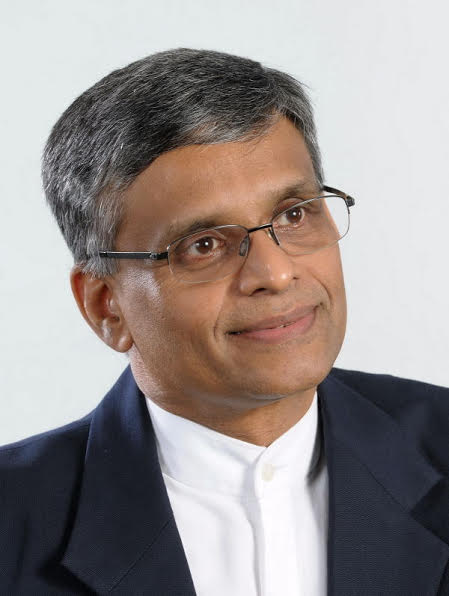You were fast asleep. You suddenly woke up as your throat went dry and it was itching. Suddenly you remembered the first Corona patient from Sri Lanka relating his dry throat experience. “Have I got it?” you wonder. You touched your chin and neck from the back of your palm and you felt the heat, looks like “I have got fever”. But you do not want to alert your spouse. You slowly leave the room drink some hot water, now you feel dryness of the throat even more. You think you have definitely got Corona.
“will wait like this till morning, should I call the numbers published by the government?
“No I will first call my physician first in the morning”
If he says to go to IDH what should I do?.
How can I tell this to the rest of the family?.
Will they also have got it, have they got to quarantine at home?
Will they have enough food and other supplies in that case?
Now when I have to leave to go to hospital can I give a hug to my child and wife? Oh no that will not be right… yet how can I leave them without at least giving them a hug.
Will I be able to communicate with them while in hospital since they will not be allowed to visit?
Will I die alone?
You see in your mind’s eye the lonely cremation at IDH the other day by health officials.
You slowly walk back to bed, and think “no this can’t be Corona” “I am so fit how can I get it. My immunity is very good”. ”Overall I have lived a good life, I cannot be that unlucky” You try to get sleep but those Corona thoughts keep coming. Tired you fall a sleep early morning and wake up a little late. You feel absolutely normal. It was only a nightmare.
This is how our mind works. It only needs a simple signal to build an elaborate story. According to scientists this ability to build stories connecting the past and projecting in to future is a skill we have developed as we became a social being in early days of evolution. The same seems not so with other less evolved animals.
For instance you see a tiger chasing a deer that was gracing. Tiger would not chase it all the way until it finally captures. Perhaps it considers return on investment. The energy spent vs the size of the prey. Tiger decides to stop the chase and sits down looking for another target. The deer realizes the danger is over and gets back to its business, gracing.
We humans cannot behave like that. We imagine all possibilities. Will the danger be there again, if so what should I do, how to build the protective system etc begin to dominate our thought process.
Though this unique ability help us survive, it has some side effects. The main effect of this process of thinking over and over which is called rumination, creates the condition we know as STRESS. Because the mind can create a bigger danger than the actual one and when you realize that the danger is too daunting to handle you are overwhelmed and then the body prepares to face this “life threatening situation” thus stress with all the related hormones surging to help you fight or flight.
Now, if you have been a Mindfulness practitioner when the proliferation of thoughts leading you becoming a Corona patient happens at some point you begin to realize that you are “imagining” or else “ Thinking”. Using the skill of uninvolved observation learnt in the practice of Mindfulness you start to label the process that goes on in your mind as “imagining”, “imagining”, “imagining” or “thinking” “thinking” “thinking”. This way of labeling the phenomena prevents you identifying yourself with that. Rather than “I am thinking” you become the observer of thinking. If you are a practitioner you know thoughts always come one after the other. Now that you established that you are observing you have a new thought process, that is observing. This creates a space and a silence and that offers an opportunity to look at the situation afresh.
Stronger the practice faster you become aware of what goes on. This will help break the vicious cycle of being driven by the emotions created by thoughts.
When a dog comes charging towards, you get frightened. You would usually say you got scared to the dog. But in reality that the feeling of fear arose not because of the dog but by the thought;
“ this dog will bite me, it will hurt me”.
Similarly when you realize the the emotion of fear or being stressed is created by the process of thinking, you become a different person. You are no more the person driven by those emotions but a person who is aware of the thought process that created the feeling or the emotion of fear.
This aspect of mindfulness practice is now scientifically established quiet well thanks to many neuro- scientists and psychologists who have been researching in to mindfulness in the recent past.
However Mindfulness or developing Sati is a core operating system of Buddha’s teaching. Though it is so, the beauty of it is that one can practice it and benefit without becoming a Buddhist or without any interference to once own faith. Within the context of Buddhism Mindfuless is called Sati Sampajanna. Sati is mindfulness and Sampajanna means clear comprehension. With clear comprehension one is able to figure out the state of the mind and act appropriately. This will distinguish whether a response is harmful to one self, to others, or both or whether it is beneficial to any party etc and then move to action.
In the process of learning Mindfulness the first skill one get to develop is to notice when the mind wonders or when the mind picks up another object other than the object it started to observe. Most often people start observing the breath when being trained in mindfulness and pretty soon they realize instead of watching the inward and outward breath one is thinking of something else. The moment one comes to realize that one is able to bring the attention back to breath. So mistakenly many students of mindfulness feel bad about this. Actually they should be very happy when that happens. Realizing that one is not watching the breath but thinking something else is in fact is the arising of Awareness or Mindfulness. As mentioned this realization and coming back to breath are key skills.
- First one become aware
- Secondly one let go of that other thought and come back to breath.
This art of letting go comes in handy when one find oneself in the vicious cycle of rumination or keep worrying about the past or being anxious about the imagined future. Breaking of this cycle is the path to be free from stress. This mental state is identified in Buddhism as Uddacca Kukkucca – sometimes translated as restlessness.
When one constantly gets back to observing breath or whatever the actual experiences that happens at that moment, after some time one begins to experience a kind of silence within. That is when the constant inner chatter is stopped. This chatter scientists identify as the default mode of the brain.
Stopping this inner chatter even for short spells can give a very pleasant feeling and that can also create a physical relaxedness as well. This is known as Passaddhi or Calmness. This calmness help approach life situations without clarity and without confusion. In such observation of situations result in better solutions. It may sound counter intuitive , for we think only actions bring solutions, or thinking very hard produces good solutions, but actually the best sparks come when thinking stops. Realization happens in that silence. You have experienced this many times in life when ideas or solutions suddenly dawns upon you out of the blues perhaps when coming out of a shower or stuck in traffic.
You may recall the incident of the foot- ball team who got trapped in an underwater cave in Thailand. None of the boys suffered from anxiety even when they faced with such eminent threat and danger. We never heard of them suffering from Post Traumatic Stress Disorder (PTSD) that is simply because the teacher who was with them guided the team to practice Mindfulness Meditation. Meditation as in Ana Pana Sati (observing the in breath and out breath without interference.) This practice alone is capable of helping a person to stay focused on the present moment and that inner clarity can give the strength to face the challenges with calm and ease.
The most traumatic and stressful situation I ever faced was when a large stall at the “Sahasak Nimevum” National Innovation exhibition caught fire burning down almost 800 innovations. I was the commissioner of the Sri Lanka Inventor’s commission. I felt so helpless. I felt as if I was at fault for not anticipating it with all my insurance experience. I knew that there was no way I could help those inventors to get back what they lost. Some were their life long experiments. No amount of money could give them back. I went home hurt. I woke many times in the night feeling sad. Early morning I did my morning mindful walk. My mind was only on walking, aware of the sounds in the neighborhood, sensations of wind passing me, and the sounds of my own footsteps crushing sand under the shoes. I was fully relaxed and at the same time fully energized. Suddenly a thought flashed. A “phoenix” the mythical bird that rose from ashes. Why not create a “ Project Pheoenix” bring the private sector also in and support these inventors to start from where they stopped ?.
I went back home straight without continuing on my walk, had a quick wash and sat in front of the computer and prepared a comprehensive paper and discussed with the authorities and eventually implemented it with equitably compensating all those who affected.
Similarly in these Uncertain and Ambiguous times for all of us especially those who are in business it is absolutely important that ability to find that inner silence to discover better solutions.
Practice of Mindfulness can invariably be a very useful skill in that.





